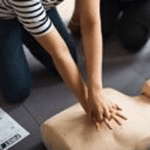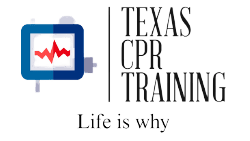
What is CPR Certification? A Guide for Professionals
Over 500,000 cardiac arrest cases occur in America annually. Cardiopulmonary resuscitation (CPR) is an emergency procedure that aims at preserving brain normalcy in cases of cardiac arrest. Regardless, professionals struggle with questions like ‘what is CPR certification?’
CPR certification is vital in the quest to save more lives from cardiac arrests.
You’ve heard of CPR, but what’s CPR certification exactly? Who needs to be CPR certified? Check out this guide to learn more.
What Is CPR Certification?
CPR certification is a series of problem-solving medical procedures. The design of the techniques helps to offer urgent treatment to cardiac emergencies. CPR techniques can also be of great use in cases of stroke.
All training and certification programs should meet the American Heart Association (AHA) standards.
CPR certification categories vary depending on the skills. Advanced Cardiovascular Life Support (ACLS) generalizes on steps you are to take in an emergency. They are dominant in adult scenarios.
PALS certification applies in cases of children. This form of certification highlights issues affecting children and how to go about them.
NRP certification is necessary for nurses and individuals who work in the delivery unit. The training offers you the knowledge to respond to emergencies in newborns.
Basic Life Support (BLS) is a universal certification that applies to all professionals. It will be of great help for the sake of society.
Individual certificates are valid for two years. After that, you are to liaise with the provider for a renewal.
Cost of CPR Certification
Obtaining life-saving skills comes at a price. The fee is to cater to organizers’ expenses. CPR training adheres to the usual learning curve.
The cost of such a program depends on the institution and the certification type. Average estimates are between $25 and $60. A combination of adult and child CPR costs around $29. The adult only program estimates at $25.
Professionals in health care pay the highest amounts since their training is intense.
The essence of CPR certification is unquestionable. The cost may be high, but then the impact is worth it. The skills will help you in life. Some employers also require the certification before they can allow you in.
Perhaps, it’s the high time that America makes it compulsory to all citizens. It’ll go a long way in saving lives.
Who Requires The Training?
Professional background is no longer a determinant in obtaining CPR skills. It has become more of a multi-professional skill. Some employers are facilitating their employees to ensure they have this necessary skill. After all, who wouldn’t want a safe society?
Professionals in the health sector are the people who need the skills the most. This fact shouldn’t invite arrogance from other professionals. Doctors and nurses are likely to encounter the situation more than others.
Firefighters and police will also need the certification. These are among the first line responders to emergencies, thus the need to train them. The levels of training between doctors and firefighters differ significantly.
Firefighters have more of the basic CPR techniques. That of doctors is complex since it involves other medical procedures.
Teachers also require necessary skills since the cases are common schools. States, e.g., Virginia, has come up with a law necessitating basic training in teachers.
Other Professionals That Need the CPR Training
Dental specialists are among the growing list of professionals who require training. Activities in their clinics may trigger falls, thus the need for the skill.
Workers in nursing homes also need training. They deal with delicate patients a majority of who are suffering from cardiac ailments. Flight attendants, babysitters, and daycare staff should also pass through some training.
Group leaders, e.g., scout leaders and camp drivers, need the skill. CPR training of any level will help all these professionals save a life or two.
Additionally, companies with abnormally dangerous jobs should make employee safety a priority. The best way to guarantee employee safety is ensuring that they pursue a CPR course. A knowledgeable workforce will be able to maneuver all challenges.
Importance of CPR Certification
You could use the skills to save someone’s life. The AHA has damning statistics on cardiac arrest cases. An overwhelming 70% of Americans feel helpless in times of need due to lack of training.
While a whopping 500, 000 suffer cardiac arrests, only 32% receive help from a bystander. Unfortunately, most of the arrests occur outside hospitals.
Going by these statistics, it is the high time that you enroll for a training session. America needs your efforts now than before.
The certification will also help you to make a difference for the victims. The fact that over 90% of the victims die before reaching a health facility shows the urgency of the matter.
America trains over 10 million individuals, yet the number is not enough. Your efforts to obtain the certification will thus go a long way in satisfying the growing demand. After all, knowledge is power.
CPR gives you a cutting edge in the job market. It adds another skill to your portfolio. It will also earn you enough respect, especially when you save a colleague in the office. Who knows? Even promotions may emerge from such acts.
Finally, CPR certification helps you to use a variety of special machines, e.g., the Automated External Defibrillator (AED). The tool can analyze and deliver a shock to the heart restoring the rhythm.
Appropriate knowledge on the use of AEDs saves a lot of lives. The phenomenon will only come to pass when you undertake the training.
CPR and Family
Even without looking at outside impact, the skills will be helpful to your family. It’s upon you to ensure that the family is aware of safety precautions. The fact that over 80% of the cardiac arrests occur in homes means that it is the right time to introduce it in families.
Your home should never lack a first aid kit. The presence of one in your car will be helpful too. Basic training and these kits may be a lifesaving combination for a close family member.
Embrace CPR!
With safety precautions in mind, the ‘what is CPR certification’ will be a thing of the past. With this information on CPR certification, there’s no doubt that you can help save lives. Contact usfor more information on CPR certification and training at 214-770-6872 or register at www.texascpr.com
